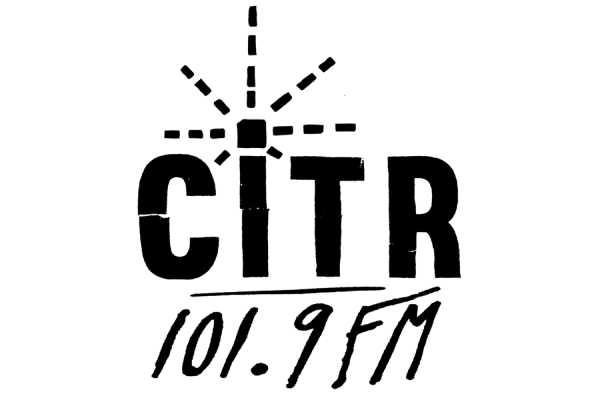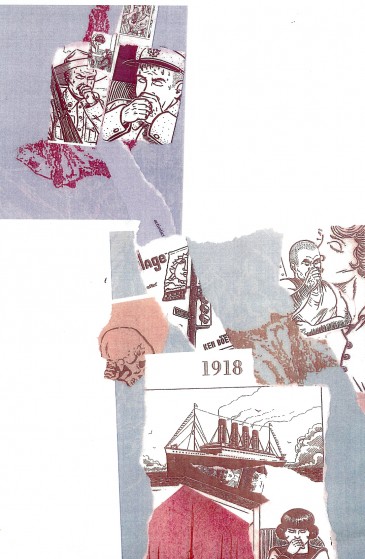With a special relentless trundle, the Vancouver International Film Festival crawls once again from the woodwork of the universe spreading its cinemagic. This year’s biggest news is the spanking new Vancouver International Film Centre with its Vancity Cinema, a welcome addition to downtown after years of shutting-down screens.
First off, let me say that sitting through movies in the new venue is a definite pleasure. I’ve never encountered such luxuriously big drink-holders, milewide
seats, endless legroom and double armrests (yes, double! I used one as a desk! And they’re padded!). It feels like riding in business class, as one
person loudly proclaimed at a press screening. Though it’s a great venue, a few warnings: don’t sit in the front row. The super-comfy seat-back design
makes it very difficult to scrunch down while looking up, not to mention these seats are pretty close to the screen. WATCH OUT for the wooden riser at the
front of the room, three people tripped and landed face-first the first day I was there. And, though I never sat up there, the balcony is apparently much less
roomy.
The best film I’ve previewed so far is Shunichi Nagasaki’s Heart Beating in the Dark. Japanese films at VIFF tend to excel at pushing boundaries without abandoning story or substance. This one is no exception. It isn’t quite a remake of the same filmmaker’s 1982 super-8 epic of the same title (which is also playing at VIFF), made in the intense Japanese super-8 scene of the early 80’s, about a guy and gal who kill their baby and then go on the lam. The outlaw-couple genre is taken to new heights as they abuse, fuck and attack one another in grainy intensity. All the traditional questions about gender relationships and cinematic morality are exploded in punk performance here: Is screen-rape real rape? Are murderers worth characterizing? The fact that an old lady walked out of the screening during a very harsh sex scene should tell you: This is a real festival film.
All these questions, plus whether the new, higher-production-value version is a cynical cashing in on an earlier success, or an attempt to subvert the
same, are thrown into total confusion by the addition both of copious excerpts from the original film, plus the original couple playing older, more sober selves, still on the lam and separated for decades. Adding to the ambiguity are self-conscious documentary intrusions about making this new version. In them, the older actor promises to participate in the remake only if he can really punch the actor playing the younger man. “If I met him now, I’d wanna punch
him,” he says. Are these bits real or staged? There’s strong tension as the older guy looks for the slightest opportunity to punch the young actor during
rehearsal, and this plays out within the dramatic scenes as well when the four characters finally come together. But as the younger actor says, “That’s kind
of hypocritical, isn’t it? You killed your baby too?” Finally, the most disturbing thing, to me at least, was the spectacle within the documentary bits of
Japanese production assistants bowing to the actors. Hope that doesn’t catch on here!
My other favourite was This Charming Girl from Korea. Slow–paced and realistic, it’s the story of a woman facing the kind of ennui you only get from working in a post office. Many filmmakers try to evoke the desperation of modern society, the pointless repetition and social disconnects, but director Lee Yoon-Ki succeeds. The larger world outside the post office is no more than a boring problem, “What code do I punch in for special delivery to Japan?” New people only intrude with lame dramas of everyday life; “Oh my, that’s how much it costs? What other choices are there?” Somehow the nothingness of it begins to cook, and when we start to learn Jeong-Hae’s life story, we aren’t surprised or shocked by the melodramas or her attempts at resolution.
Oh-oh, there’s so much to see and so little space to inform you! I think it’s important that everyone check out The Score, which is… wait for it!… a dance musical about Huntington’s disease! Of course such a production could only emerge from Canada. Locally made by fast-rising Screen Siren
pictures and Electric Company theatre, it is one of those films which has to be seen because, well, how could it possibly work!? And if it does work, could you
ever forgive yourself for missing it?!
Don’t bother seeing Paper Moon Affair, a listless if spiffy would-be-potboiler, and unwittingly-fetishistic time-filler about a Japanese woman abandoned in the woods by her rich husband. Too many weak plotlines, cardboard-thin characters and a general lack of point will possibly be dug by the demillectual class starved for another The Piano. Produced by the gang behind Lunch With Charles (Bif Naked’s film debut), the worst thing about PMA is the dastardly attempt to set it in both America and Canada at the same time, with American money, but Canadian
mailboxes. Or maybe that’s old Canadian money, but new license plates? Subtle hypertextual engagement or simple marketing cynicism? You decide. One shouldn’t have to be distracted by such things during a film.
Other things you should check out are: Clement Virgo (Rude)’s new feature Lie With Me, and Deepa Mehta’s new Water (sequel to Fire, Earth, but not Air for some reason). C.R.A.Z.Y. is a Quebec box-offi ce
hit, and you should ALWAYS SEE Quebec boxoffice hits. See you on the other side!



